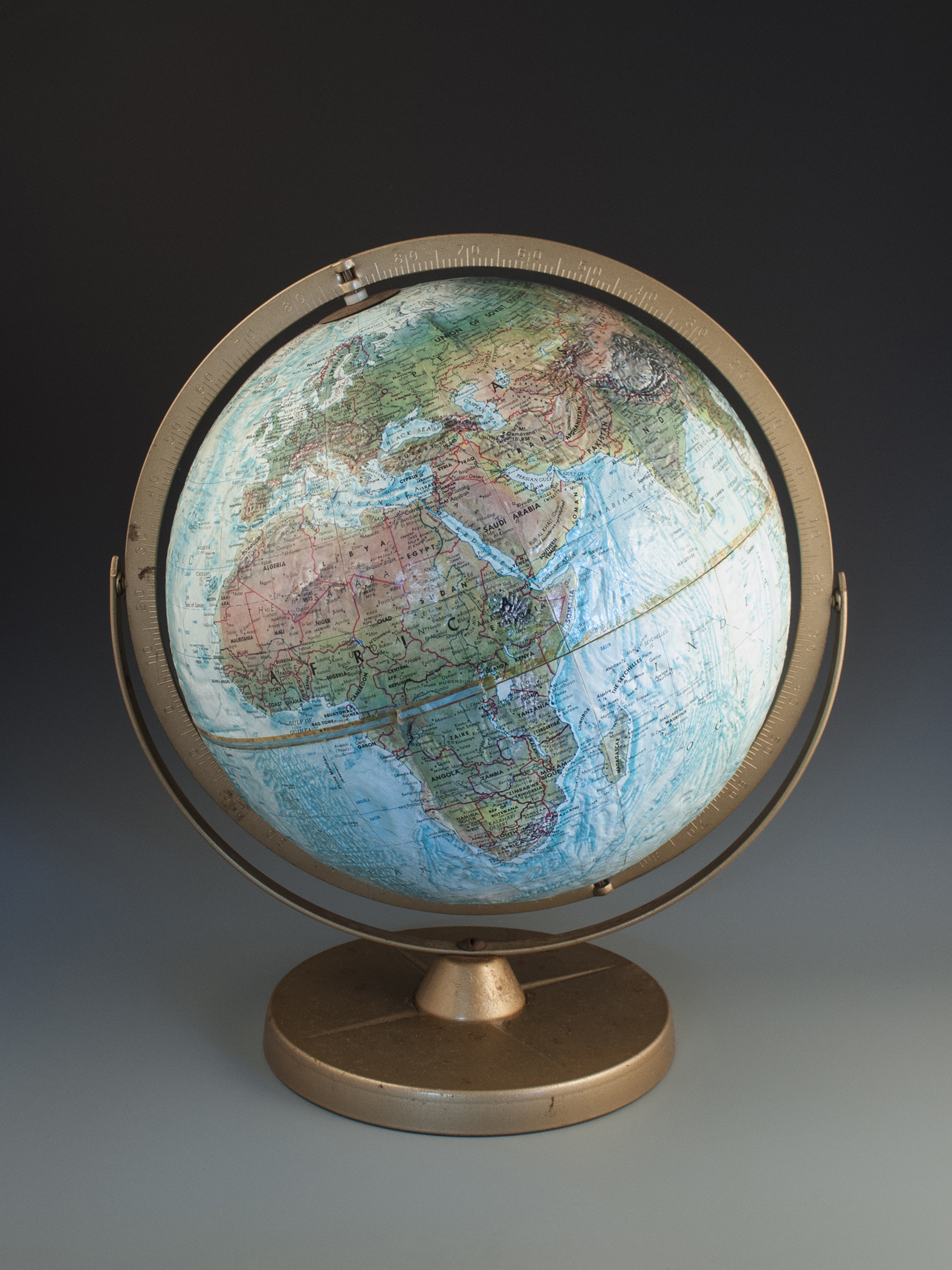World Globe

My high school career was abysmal. I was bullied, my grades were awful, and the fact that I’d skipped 2nd grade meant I was a year younger than anyone else in my class.
College was a different story. Though it was a humble institution, Nassau Community College—located on the former Mitchel Air Force Base, with abandoned hangars serving as lecture halls and basketball courts—was a revelation. It was as if I’d swapped Lord of the Flies for Huxley’s Island. An unprecedented self-confidence possessed me.
I loved my psychology classes, but my favorite subject was astronomy. Naively, I’d taken the class to learn the names of the constellations and other sexy facts about the moon and planets. But it was all math and physics. I well remember my midterm essay: “Calculating the Rotational Speed of Saturn from the Red Shift of its Rings.”
Professor X was a gem: funny, challenging, a bit paunchy, adept. I was his best student. After our especially difficult midterm exam I was standing in the hallway, commiserating with my classmates about how tough and unfair the questions had been. X emerged, walked up, and placed a hand on my shoulder. “You’re the first student,” he declared, “to ever make a perfect score on that test.” My classmates melted away, mumbling.
For the final, X gave us a bonus question which—if answered correctly—meant an automatic “A” for his class. “This is not a trick,” Professor X announced. “So think very carefully before you answer: How long does a day last on planet Earth?”
Protests rang out across the room. What? It wasn’t 24 hours? What did he mean, “a day?” On this planet Earth? “Long” measured in time, or miles?
“One day on planet Earth,” he clarified. “Like today: Tuesday, May 12, 1973.”
I got my “A” anyway, of course. But I’ll never forget that deceptively simple question, and its surprising—but undeniably correct—answer. No one got it right. Not even me. If you do, this lovely lapis globe is yours.
